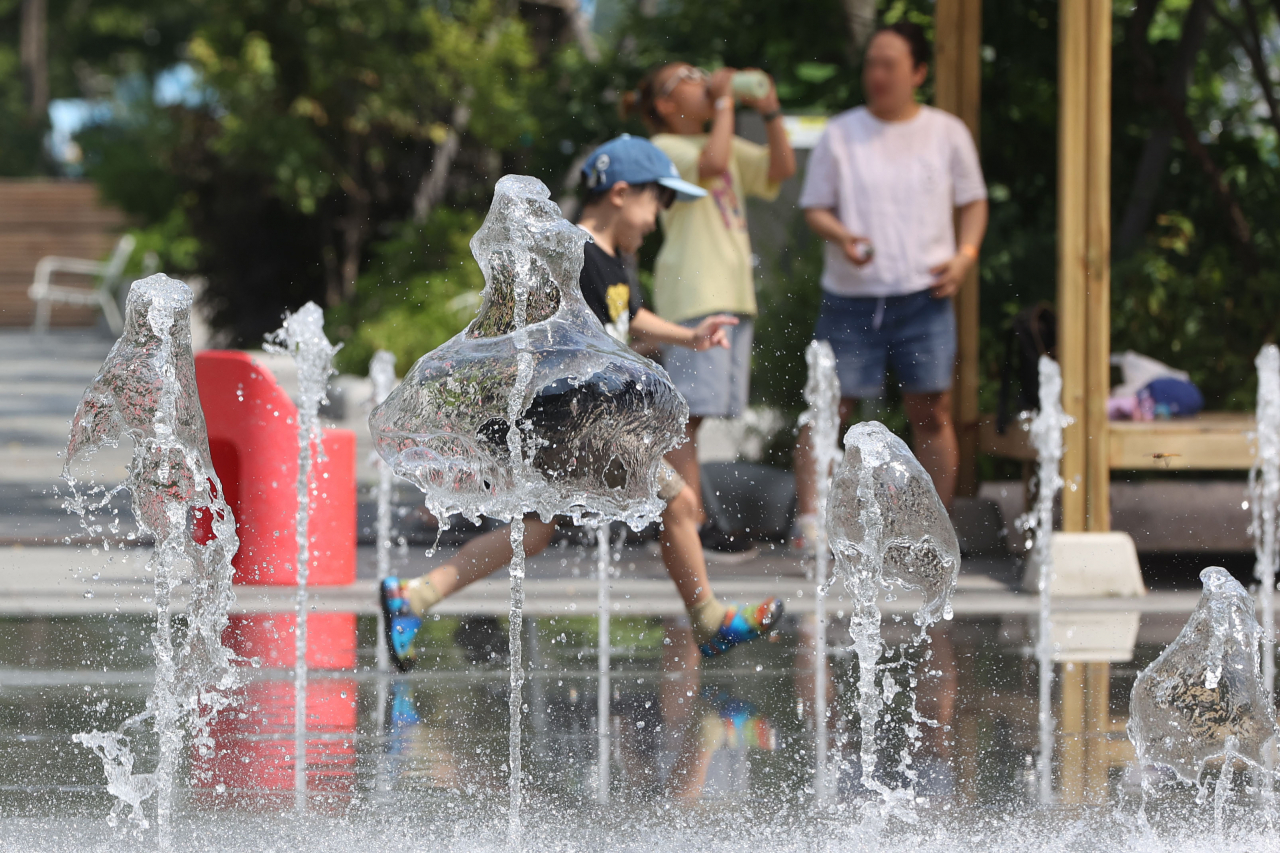 |
Children cool off in the ground fountain as the heatwave persists across the country, at Gwanghwamun Square in Seoul on Monday. (Yonhap) |
The tropical night phenomenon has continued in Seoul for 22 days in a row, the third longest on record, the state weather agency said Monday.
Seoul has experienced yet another tropical night phenomenon overnight, marking the third longest on record since modern meteorological observation began in the city in 1907, the Korea Meteorological Administration (KMA) said.
A tropical night refers to a phenomenon when the nighttime temperatures stay above 25 degrees Celsius from 6:01 p.m. to 9 a.m. the following day.
The cities of Incheon and Busan also experienced the tropical night phenomenon for 20 days and 18 days in a row, respectively.
It marks the third-longest record of tropical nights in Incheon since 1904, and the fifth in Busan.
The heat wave will continue throughout Monday in most regions, with apparent temperatures rising to about 35 degrees Celsius.
As of 8 a.m., the temperatures in major cities recorded 29.3 degrees Celsius in Seoul, 29.7 degrees Celsius in Incheon, 29 degrees Celsius in Daejeon, 27.5 degrees Celsius in Gwangju and 28.8 degrees Celsius in Busan.
The daily highs are forecast to hover around 30-35 degrees Celsius.
The KMA expects the heat wave to continue for the time being, adding the temperatures from Thursday to Aug. 22 will be higher than normal years, with the morning temperatures ranging from 23-27 degrees Celsius, and daytime temperatures from 30-34 degrees Celsius.
Many parts of the country, including the greater Seoul area, parts of Gangwon Province and Chungcheong Province, will see sporadic showers from the afternoon until nighttime.
The eastern Gyeonggi Province and parts of Gangwon Province are expected to receive 5-40 millimeters of rain, and the rest of the region will see 5-20 millimeters of rain during this time, according to the KMA.
Separate government data showed that the number of people affected by heat-related illnesses reached the highest level since 2018, when South Korea went through one of its worst heat waves.
A total of 2,293 people suffered heat-related illnesses between May 20 and Aug. 11, the highest since 3,841 tallied in the same period in 2018, according to data compiled by the Korean Disease Control and Prevention Agency.
The number of people who have died due to heat-related causes came in at 21 this year, with 14 deaths occurring in August.






![[Today’s K-pop] Blackpink’s Jennie, Lisa invited to Coachella as solo acts](http://res.heraldm.com/phpwas/restmb_idxmake.php?idx=644&simg=/content/image/2024/11/21/20241121050099_0.jpg)
